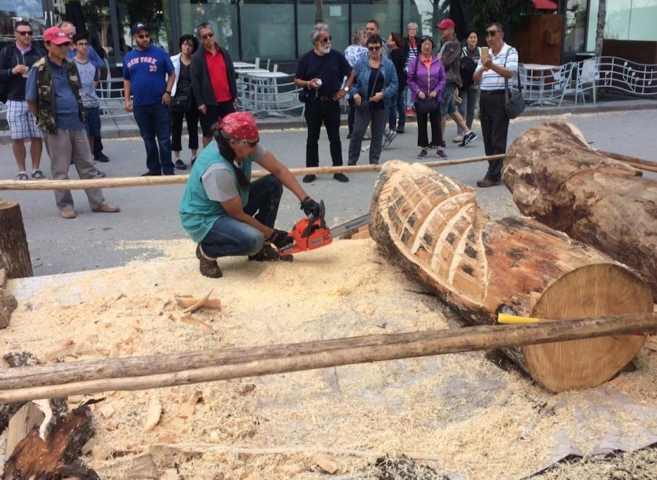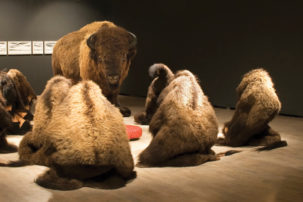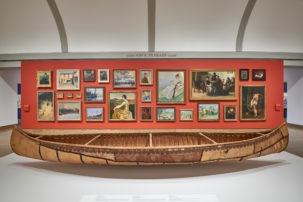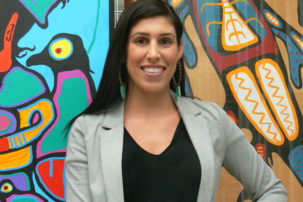Our editors’ weekly roundup of Canadian art news.
A new $500,000 Calgary public art piece by a non-Indigenous artist, New York’s Del Geist, has drawn criticism for its resemblance to Indigenous burial towers and for its lack of Indigenous consultation in process. Each of the four steel towers in the piece hold Rundle rock, a type of stone only found in Alberta, supposedly representing “the four seasons, four directions, four elements and four stages of life,” said Sarah Iley, manager of arts and culture at the City of Calgary. However, Blackfoot artist Adrian Stimson, whose proposal for the open competition was rejected, told Global News that the Blackfoot-burial symbolism is inescapable. “As a Blackfoot man, I will have difficulty going by that piece and even as a contemporary artist, I can accept it, but I will go by thinking of funeral platforms no matter what I do,” he said. Stimson called for changes to the city’s public art policies to avoid the absence of Indigenous consultation and representation in the future. The installation will be fully completed at the end of October, but the Tsuut’ina First Nation is urging the city to remove it. The artist Del Geist has declined to name the Blackfoot elders he claims he consulted, and says he’s “sorry if anyone feels offended.”
OCAD University announced on Tuesday that Ashok Mathur will begin his new appointment as dean of graduate studies in January 2018. Previously, the scholar and writer held significant administrative positions as head of creative studies at the University of British Columbia in Okanagan, leading its tier 2 Canada Research Chair in cultural and artistic inquiry, and as head of critical and cultural studies at the Emily Carr University of Art and Design. Mathur holds a PhD in postcolonial literature, and his prolific output includes his 2011 anthology Cultivating Canada: Reconciliation through the lens of cultural diversity, and his 2001 novel The Short, Happy Life of Harry Kumar.
The Toronto International Film Festival announced the 26 titles in its Canadian feature slate in a press release yesterday. Among the films making their world premieres are Alanis Obomsawin’s Our People Will Be Healed, the 50th film in her 50-year NFB career, and Jennifer Baichwal and Nicholas de Pencier’s Long Time Running . TIFF also announced its Canadian short-film programming, which features 11 titles directed by women and three films by Indigenous filmmakers, among 29 entries. Among them are Michelle Latimer’s Nuuca, executive produced by Oscar winner Laura Poitras, and Caroline Monnet’s Creatura Dada, which stars Alanis Obomsawin and is Monnet’s first project since becoming the first Canadian filmmaker selected by Cannes Film Festival for their prestigious Cinéfondation Residence program.
After its struggles to meet minimum enrolment requirements jeopardized the future of the Yukon School of Visual Arts, the school announced that it has enough students to run its first-year fine arts diploma program in the upcoming school year.

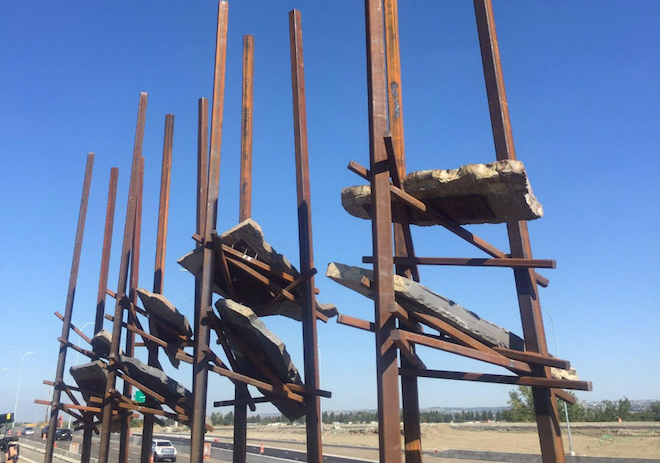 A new public artwork in Calgary, created by New York artist Del Geist, has generated concern among members of the Tsuu'tina Nation. Photo: via City of Calgary Twitter Feed.
A new public artwork in Calgary, created by New York artist Del Geist, has generated concern among members of the Tsuu'tina Nation. Photo: via City of Calgary Twitter Feed.
